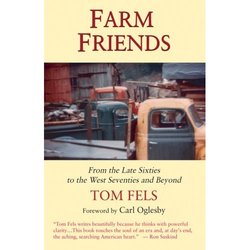Source of book image: http://ecx.images-amazon.com/images/I/51rILrqBegL._SS500_.jpg
(p. A17) . . . other farm alumni make no pretense to continuing the revolution but instead engage in the boomer habit of replacing youthful extremism with a middle-aged version: “We used to think money was the least important thing. Now I can see that it’s the most important,” says one former commune member, sounding like a budding Randian. “Money buys freedom.”
Few of the farm friends are terribly likable or sympathetic — with the notable exception of Tim, an “alienated citizen” of the farm while he lived there. Tim found the commune’s group dynamics stifling. He wanted time to himself and was promised that he could build his own room and work space in the barn, but the objections of others to his solitary plans thwarted him at nearly every turn.
Of the farm’s whole New Age mission, Tim remarks: “The error was, I think, imagining that there was somewhere new to go, someone new to be. It became increasingly clear that a closed system of myth did not jibe with the world as it really was.” Looking later at the outside world, Tim saw “a system formed less from malice than from a kind of natural order, less from inordinate greed than from longings much like our own for privacy, comfort, individual freedom, and one’s familiar or chosen way of life.” Unfortunately, “Farm Friends” spends too little time with Tim.
For the full commentary, see:
PAUL BESTON. “Bookshelf; A Look Back at the New Age.” Wall Street Journal (Tues., July 22, 2008): A17.
(Note: ellipsis added.)


